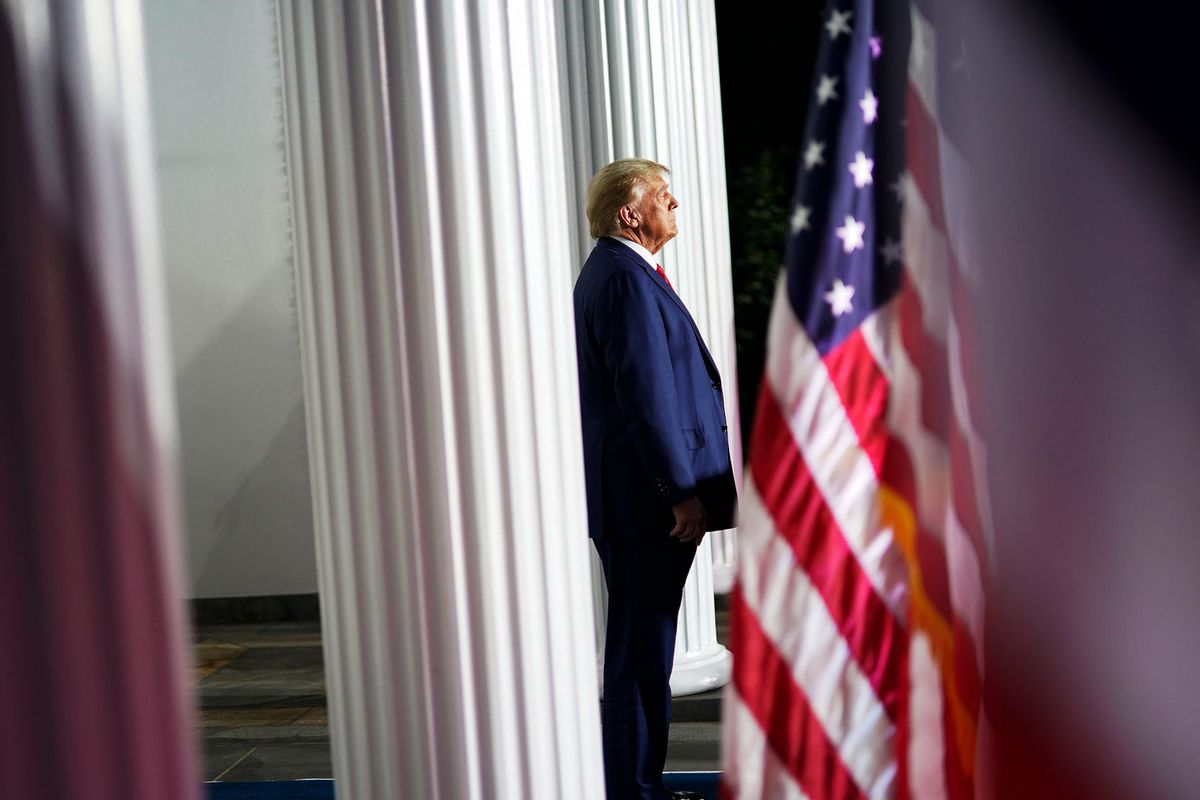Expert: Inability to find new lawyer leaves Trump without expert to handle Espionage Act charges

Former President Donald Trump, who spent the day prior to his historic federal court appearance desperately scrambling to find legal representation, appeared in court Tuesday accompanied by two of his existing attorneys as he faced federal criminal charges for retaining national security documents and obstructing government efforts to retrieve them.
His attorneys Todd Blanche, an attorney handling his case in New York, and former Florida solicitor general Christopher Kise joined him in court after several prominent Florida attorneys declined to take on him as a client.
Two of the key lawyers Jim Trusty and John Rowley, who were initially handling the documents case, stepped down last week just hours after a Florida grand jury voted to charge the former president with 37 counts including alleged violations of the Espionage Act, obstruction and false statements.
Leading up to his arraignment, Trump and his legal team dedicated their afternoon to interviewing prospective lawyers, The Guardian reported. His search for a specialist national security lawyer, eligible to possess a security clearance, was also unsuccessful – leaving Trump without an expert to help him handle the Espionage Act charges.
“The issue isn’t navigating the Espionage Act charges themselves, which are relatively straightforward; the issue is navigating the Classified Information Procedures Act (CIPA) and knowing how to exploit all its procedural mechanisms to the client’s benefit,” Adam Kamenstein, a former federal prosecutor and current partner with Adams, Duerk & Kamenstein, told Salon.
He added that Trump is reported to not pay his bills and has gotten “more than one of his lawyers into their own legal trouble,” making him a difficult client to work with.
Trump, who finds himself repeatedly entangled in legal woes, has become accustomed to an evershifting legal team. For him, the process is all too familiar with hiring new lawyers, but failing to keep them around as he faces mounting legal battles amid his multiple ongoing investigations.
Trusty, Trump’s top lawyer, abruptly resigned from his defense team the morning after he appeared on CNN claiming he had a theory that federal prosecutors “extorted” an attorney in the classified documents probe.
Another lawyer, Timothy Parlatore, departed from Trump’s legal team in May. He was one of the lawyers who sent a letter to Congress asking them to tell the Justice Department to “stand down” on the documents probe.
Then there’s Evan Corcoran, another criminal defense attorney who previously represented Trump in the documents investigation, but had to recuse himself in April after a federal judge ordered him to turn over notes documenting his interactions with Trump.
Prosecutors found evidence of Trump using his attorney to advance a crime, which led the judge to pierce the protections offered by attorney-client privilege.
“There are not many lawyers who have adequate experience in dealing with classified document cases and CIPA, so the pool is small to begin with,” Kamenstein said.
But when you add on the other troubles that come with being the former president’s attorney, the pool shrinks even more.
The recent indictment revealed that Trump attempted to sway his attorneys to lie to authorities about federal documents and suggested they tamper with the evidence.
In at least one meeting, Trump praised a lawyer working for Hillary Clinton, whom he claimed had done a “great job” by deleting emails from her private server.
In another, he gestured with a “plucking motion” using his hand, trying to convince his lawyer to remove any documents that were bad.
Want a daily wrap-up of all the news and commentary Salon has to offer? Subscribe to our morning newsletter, Crash Course.
The documents, which were found in different parts of Mar-a-Lago, including Trump’s bedroom, ballroom and even next to a toilet in a bathroom “could put at risk the national security of the United States, foreign relations, the safety of the United States military,” according to a paragraph from the indictment.
Catherine Ross, a constitutional law professor at George Washington University, told Salon that this was one of the most startling and troubling paragraphs in the indictment that she came across.
“That concern has been magnified by listening to a number of people with significant intelligence background, commenting on the fact that it might take us as much as years to figure out exactly which sources and methods are compromised, and to safeguard what is out there and to rebuild what we and our allies have built,” Ross said.
Read more
about the Trump indictment

